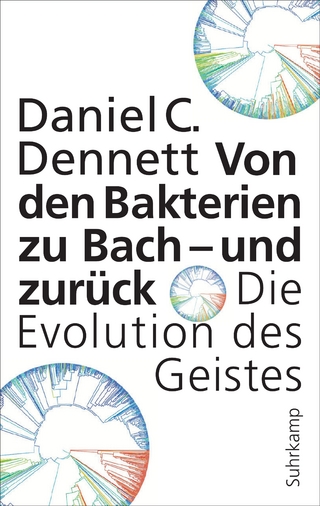
Autonomy Platonism and the Indispensability Argument
Seiten
2015
Lexington Books (Verlag)
978-0-7391-7312-1 (ISBN)
Lexington Books (Verlag)
978-0-7391-7312-1 (ISBN)
This book includes detailed critical analysis of a wide variety of versions of the indispensability argument, as well as a novel approach to traditional views about mathematics.
Mathematical platonism is the view that mathematical statements are true of real mathematical objects like numbers, shapes, and sets. One central problem with platonism is that numbers, shapes, sets, and the like are not perceivable by our senses. In contemporary philosophy, the most common defense of platonism uses what is known as the indispensability argument. According to the indispensabilist, we can know about mathematics because mathematics is essential to science.
Platonism is among the most persistent philosophical views. Our mathematical beliefs are among our most entrenched. They have survived the demise of millennia of failed scientific theories. Once established, mathematical theories are rarely rejected, and never for reasons of their inapplicability to empirical science.
Autonomy Platonism and the Indispensability Argument is a defense of an alternative to indispensability platonism. The autonomy platonist believes that mathematics is independent of empirical science: there is purely mathematical evidence for purely mathematical theories which are even more compelling to believe than empirical science.
Russell Marcus begins by contrasting autonomy platonism and indispensability platonism. He then argues against a variety of indispensability arguments in the first half of the book. In the latter half, he defends a new approach to a traditional platonistic view, one which includes appeals to a priori but fallible methods of belief acquisition, including mathematical intuition, and a natural adoption of ordinary mathematical methods. In the end, Marcus defends his intuition-based autonomy platonism against charges that the autonomy of mathematics is viciously circular. This book will be useful to researchers, graduate students, and advanced undergraduates with interests in the philosophy of mathematics or in the connection between science and mathematics.
Mathematical platonism is the view that mathematical statements are true of real mathematical objects like numbers, shapes, and sets. One central problem with platonism is that numbers, shapes, sets, and the like are not perceivable by our senses. In contemporary philosophy, the most common defense of platonism uses what is known as the indispensability argument. According to the indispensabilist, we can know about mathematics because mathematics is essential to science.
Platonism is among the most persistent philosophical views. Our mathematical beliefs are among our most entrenched. They have survived the demise of millennia of failed scientific theories. Once established, mathematical theories are rarely rejected, and never for reasons of their inapplicability to empirical science.
Autonomy Platonism and the Indispensability Argument is a defense of an alternative to indispensability platonism. The autonomy platonist believes that mathematics is independent of empirical science: there is purely mathematical evidence for purely mathematical theories which are even more compelling to believe than empirical science.
Russell Marcus begins by contrasting autonomy platonism and indispensability platonism. He then argues against a variety of indispensability arguments in the first half of the book. In the latter half, he defends a new approach to a traditional platonistic view, one which includes appeals to a priori but fallible methods of belief acquisition, including mathematical intuition, and a natural adoption of ordinary mathematical methods. In the end, Marcus defends his intuition-based autonomy platonism against charges that the autonomy of mathematics is viciously circular. This book will be useful to researchers, graduate students, and advanced undergraduates with interests in the philosophy of mathematics or in the connection between science and mathematics.
Russell Marcus is assistant professor of philosophy at Hamilton College.
Chapter One: Platonism: An Overview
Chapter Two: The Quinean Indispensability Argument
Chapter Three: Problems for QI
Chapter Four: The Weasel
Chapter Five: The Unfortunate Consequences
Chapter Six: The Putnamian Indispensability Argument
Chapter Seven: The Explanatory Indispensability Argument
Chapter Eight: Motivating Autonomy Platonism
Chapter Nine: Plenitudinous Platonism
Chapter Ten: Intuition-Based Autonomy Platonism
Chapter Eleven: Circles and Justification
Chapter Twelve: Conclusions
| Verlagsort | Lanham, MD |
|---|---|
| Sprache | englisch |
| Maße | 160 x 236 mm |
| Gewicht | 508 g |
| Themenwelt | Geisteswissenschaften ► Philosophie ► Erkenntnistheorie / Wissenschaftstheorie |
| Geisteswissenschaften ► Philosophie ► Logik | |
| Geisteswissenschaften ► Philosophie ► Metaphysik / Ontologie | |
| Geisteswissenschaften ► Philosophie ► Sprachphilosophie | |
| Mathematik / Informatik ► Mathematik ► Geschichte der Mathematik | |
| ISBN-10 | 0-7391-7312-X / 073917312X |
| ISBN-13 | 978-0-7391-7312-1 / 9780739173121 |
| Zustand | Neuware |
| Informationen gemäß Produktsicherheitsverordnung (GPSR) | |
| Haben Sie eine Frage zum Produkt? |
Mehr entdecken
aus dem Bereich
aus dem Bereich
Buch | Softcover (2023)
Reclam, Philipp (Verlag)
7,00 €
die Evolution des Geistes
Buch | Softcover (2025)
Suhrkamp (Verlag)
30,00 €
die Grundlegung der modernen Philosophie
Buch | Softcover (2023)
C.H.Beck (Verlag)
18,00 €
![Was heißt Denken?. Vorlesung Wintersemester 1951/52. [Was bedeutet das alles?] - Martin Heidegger](/media/113619842)

